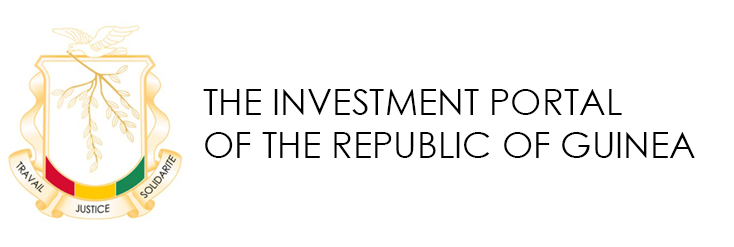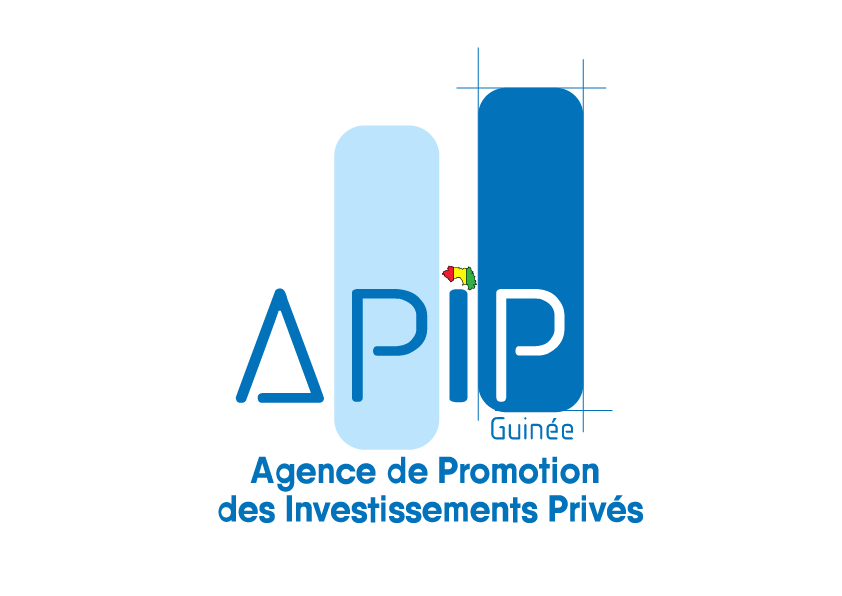Charters investments
In 2010, the swearing in of a democratically elected government in Guinea has indeed paved the way to implementing a sound approach based on the attractiveness, effectiveness and inclusion of the private sector in defining the country's economic policies.
The objective of this new approach is to promote investment. The Government has therefore undertaken several reforms in the legal, judicial, and institutional frameworks. Accordingly, on May 25, 2015, the Investment Code Act L008/AN was adopted.
The Investment Code is an investor friendly tool; it facilitates investment processes basically through a one-stop-shop mechanism, provides incentives to boost business prospects, and establishes an efficient control system.
The core of the investment code
The Investment Code is an attractive tool that guarantees security for investors. It enhances economic competitiveness through preferential tax and customs incentives outlined in the 2014 Finance Act.
1. General purpose of the Investment Code
The main objectives of the Code are as follows:
a. The creation, expansion, diversification and modernization of agricultural, handicraft, pastoral, fishing, manufacturing, processing, transportation and waste companies;
b. Encourage job creation and build the capacity of the local labor force;
c. Attract foreign capital and mobilize national savings;
d. Encourage processing and added value to local raw materials;
e. Invest in export and economic sectors to add value to the immense natural resources and local products;
f. Transfer appropriate technologies for the country’s development;
g. Promote Public-Private Partnerships;
h. Promote green industry initiative and diversify export products.
2. Scope of the Investment Code
· The Code shall apply on the entire territory of the Republic of Guinea and distinguishes two (2) economic zones:
a. Zone A comprises Conakry Region and the prefectures of Coyah, Forécariah, Dubréka, Boffa, Fria, Boké and Kindia; and
b. Zone B covers the rest of the country.
· The Code applies to the following sectors of activity:
a. Agriculture, fisheries, livestock farming, forestry, and storage activities of plant, animal or fish products;
b. Manufacturing, production or processing;
c. Tourism and tourism industry development, other hospitality activities;
d. Social housing;
e. Road improvement works, municipal and industrial waste treatment activities;
f. Cultural industries: book, disk, cinema, documentation center, audio-visual production center;
g. Services in the following subsectors
- Health;
- Education and training;
- Installation and maintenance of industrial equipment;
- Teleservices;
- Road, Air and Sea transportation
- 100% in the 1st and 2nd years;
- 50% in the 3rd and 4th years;
- 25% in the 5th and 6th years.
- 100% in the 1st and 2nd years;
- 50% in the 3rd and 4th years;
- 25% in the 5th, 6th, 7th and 8th years.
- Alternative Minimum Tax (IMF) – Profits Tax (BIC) - Corporation Tax (IS) – Trade Tax – and CFU fall under the tax exempt status in the following proportions:
- 100% in the 1st, 2nd and 3rd years;
- 50% in the 4th, 5th and 6th years;
- 25% in the 7th and 8th years.
- Lump Sum Tax – Apprenticeship Tax – and Registration Fees are exempted in the following proportions:
- 100% the 1st, 2nd and 3rd years;
- 50% in the 4th, 5th and 6th years;
- 25% in the 7th, 8th, 9th and 10th years.
- The Ministry in charge of Private Sector Promotion
- The Private Investment Promotion Agency "APIP-Guinea"
- The Technical Investment Monitoring Committee (CTSI)
- Invest in a sector covered by the Investment Code;
- Be registered at the trade registry (RCCM);
- Have a good tax standing; and
- For specific cases :
- For a newly established company, simultaneously project an investment higher than or equal to GNF 200 million and create 5 permanent national jobs;
- For corporate expansion, the investment project shall ensure increased production of goods and / or services or the number of domestic jobs at 35% minimum.
h. Road, Port, Airport and Railway infrastructure
i. Building commercial complexes, industrial parks, information and communications technology village and handicraft centers.
· The following sectors of activity are subject to technical regulations:
Activities in the following sectors are subject to prior authorization:
a. Water and electricity sector, except for private needs;
b. Banking and insurance;
c. Post and Telecommunications sector;
d. Purchase, sales and manufacture of explosives, arms and ammunitions;
e. Health, Education and Training; and
f. Manufacture, import, distribution of drugs, toxic and hazardous goods.
· The following sectors are restricted
Foreign investors may not hold directly or indirectly more than 40% shares or manage companies in the following sectors:
a. Daily or periodical newspaper and magazine publication companies; and
b. Television or radio broadcasting companies
· The Code may NOT apply to the following sectors of activity
The following are exempted from the scope of the Code:
a. The purchase and sales of goods without undergoing any processing or transformation;
b. The mining and oil sectors (already largely covered in the mining and oil Code);
c. Investment benefiting from specific aid schemes determined by tax law or other specific laws.
3. Rights and protection for investors under the Code
The Code allows foreign investors to hold up to 100% of their company shares, except for restricted sectors2.
Foreign investors have the same rights and receive similar treatment as domestic investors.
All investors legally established in Guinea are free inter alia to:
a) Acquire property, rights and concessions as well as enjoy such assets and vested interests;
b) Transfer abroad without prior authorization and in any currency their funds, after-tax profits, dividends etc. subject to tax payment;
c) Freely choose any technical, industrial, commercial, legal, social and financial management style;
d) Partake in tenders for any public procurement;
e) In accordance with the Guinean legislation, adopt any human resources management policy and freely recruit staff.
Investors are given strong guarantee against any measure of nationalization and expropriation of their companies, except for reasons of public utility after a legitimate and prior compensation.
4. Benefits granted
Benefits granted to companies under the Investment Code vary depending on whether it is in the startup phase or the operational phase:
a. Startup phase (exemption for a 3-year period)
Customs: Exemption from all charges and any import duties of equipment and materials but motor vehicles except for Registration Fees (TE) of 0.5% and Processing and Liquidation Fees (RTL) of 2% on the CAF value.
Domestic tax: Exemption from Trade Tax, Unique Property Tax (CFU), Lump Sum Tax (VF), and Apprenticeship Tax (TA) except the 1.5% Contribution for Vocational Training (ONFPP).
b. Operational phase (Relief)
Customs: For unlimited duration, RTL at 2%, Fiscal Tax at 6% and Value Added Tax (VAT) at 18% on inputs or raw materials import.
Domestic tax:
Zone A:
· Alternative Minimum Tax (IMF) – Profits Tax (BIC) - Corporation Tax (IS) – Trade Tax – and CFU fall under the tax exempt status in the following proportions:
· Lump Sum Tax – Apprenticeship Tax – and Registration Fees are exempted in the following proportions:
Zone B:
5. Institutional framework
The institutional framework of the Investment Code is the following:
6. Obligations of investors
Investors must:
a. Comply with the laws and regulations in force in the Republic of Guinea and with international standards;
b. Contribute to building the capacity of local staff and foster the transfer of technologies;
c. prioritize domestic suppliers and subcontractors and hire local labor for jobs not requiring special skills;
d. Help improve the living conditions of local communities;
e. Submit an annual activity report.
7. Conditions and Procedures to benefit from incentives
a. Conditions
To benefit from the preferential regime, investors must meet the following conditions:
b. Procedures

1. The Investment Charter does not contain all the provisions of the Investment Code but most of them. It is therefore recommended to consult the Investment Code for more information on the matter.
2. The publication of daily or periodical newspapers and magazines and broadcasting of television or radio programs.
Download the decree implementing the new Investment Code (French version)
Download the order on MIPPSP Investments Monitoring Technical Committee (French version) (19-7-2016)


